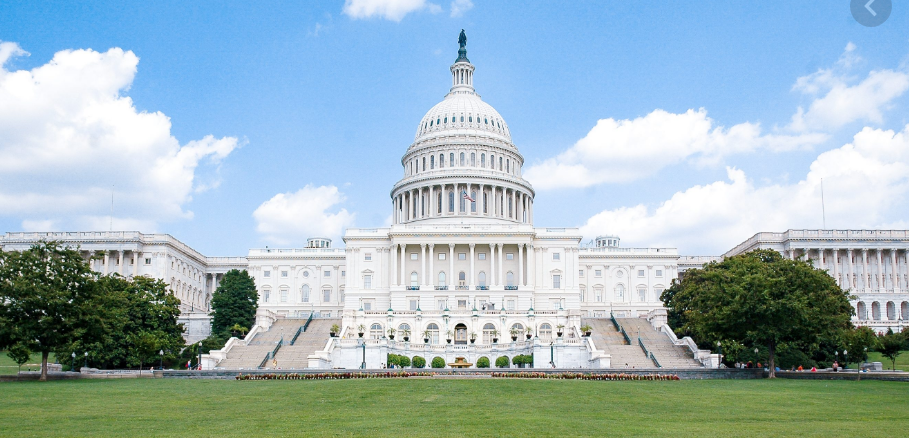
In a rare bit of good news out of DC, it seems as though the “stimulus” part of the new fiscal package may be dropped:
Direct cash payments to most American households were one of the most popular and efficient measures Congress enacted as part of its response to the coronavirus pandemic earlier this year, but lawmakers seem to have lost interest in another round of checks.
Legislators this week resuscitated talks over a new coronavirus relief package, which includes new unemployment assistance, money for vaccine distribution and more aid for businesses and state governments. But none of the potential compromise proposals includes another round of stimulus checks.
“We’re sending money out as a relief for people in distress, as opposed to a stimulus. This is not a stimulus bill,” Sen. Mitt Romney (R-Utah) told HuffPost about bipartisan $900 billion legislation he is crafting with other moderate senators.
The main factor holding back the economy is not a lack of disposable income; indeed areas where people are free to spend (retail sales, housing, etc.) are booming. Rather the recession is heavily concentrated in services where social distancing is a problem. Once the vaccines are widely available in the early spring, those sectors will bounce back strongly. Many people who skipped summer vacation this year will be anxious to take a vacation next summer. As an analogy, consumption rebounded strongly after the WWII-era rationing came to an end. The postwar depression predicted by Keynesian economists never happened.
I have not examined the proposed legislation in detail and thus don’t have a position on the overall bill. But right now the economy does not need fiscal stimulus. If any fiscal package is going to be enacted, it makes sense to focus on those who are negatively affected by the crisis, especially the unemployed and small businesses adversely affected by Covid-19. There is no obvious reason to send $1200 checks to Americans with good jobs.
I wouldn’t be opposed to a bit more monetary stimulus, although I suspect the Fed will hit its 2% average inflation target sooner than most economists expect. The Fed did not actually do very much monetary stimulus in 2020. They have plenty of ammo.

READER COMMENTS
Thomas Hutcheson
Dec 3 2020 at 8:09pm
Agreed that the NGDP does not need fiscal stimulus, it needs the Fed to get inflation expectations up to target.
There are unmet needs for relief, namely for S&LG and to fund massive testing of asymptomatic people.
Muhammad M Rashid
Dec 3 2020 at 9:19pm
What is the income threshold being considered for a ‘good job’.? Is the poverty line a consideration for a relief package ?
ChrisA
Dec 4 2020 at 12:49pm
Scott, what is your take on this https://www.thestreet.com/mishtalk/economics/23-6-of-all-us-dollars-were-created-in-the-last-year just linked by Tyler. Is this not monetary stimulus on a big scale?
Scott Sumner
Dec 4 2020 at 5:27pm
I don’t find M2 to be very useful, so I don’t see any big monetary stimulus.
nobody.really
Dec 4 2020 at 2:34pm
Hm. Compelling analogy.
MICHAEL PETTENGILL
Dec 10 2020 at 12:56pm
The Fed inflated Elon Musk assets by 8x which Elon converted to billions in cash to pay workers to build rockets, rocket and satellite factories, satellite networks, tunnels, battery factories, vehicle designs, vehicle factories, roofing with integrated solar technology, roofing factories, solar distribution, utility power storage and management products and sales.
The question is why the conservatives’ preferred industries has failed to leverage Fed asset price inflation to build many new health care assets like PPE factories, hospitals, clinics to increase supply to drive down prices.
Or build fiber to every home to provide high speed internet to rural America so they have great online education for a price low enough for public schools to pay for at less than $40 a month per kid in poverty. China is driving fast to universal fiber to the home, which Verizon marketed successfully in the 90s creating high consumer demand, but then failed to deliver due to old tech monopolies using government to block Verizon and all others building the FiOS assets needed.
As I see it, building new capital to eliminate capital scarcity euthanizes the monopolies and rentier capitalists, driving down asset prices, “destroying wealth”. “Green” public policies have destroyed wealth in fossil fuels as workers have been paid to build assets that deliver product cheaper.
MICHAEL PETTENGILL
Dec 10 2020 at 1:02pm
GOP governed rural America are spending lots on household food supply stores where the food price is zero because they have so much disposable income?
Ruben crane
Dec 31 2020 at 2:11pm
The last agreement concluded between the US Treasury Department and members of the House of Representatives and the US Senate included a financial stimulus package of 900 billion US dollars, but there are reports that US President Donald Trump signed a fiscal stimulus package agreement that could reach $ 2.3 trillion and split into $ 1.4 trillion funded by the Government Funding Act, with $ 9 trillion for the relief project extension. While we await the issuance of an official statement from the US Congress or President Trump’s administration later today.
Comments are closed.